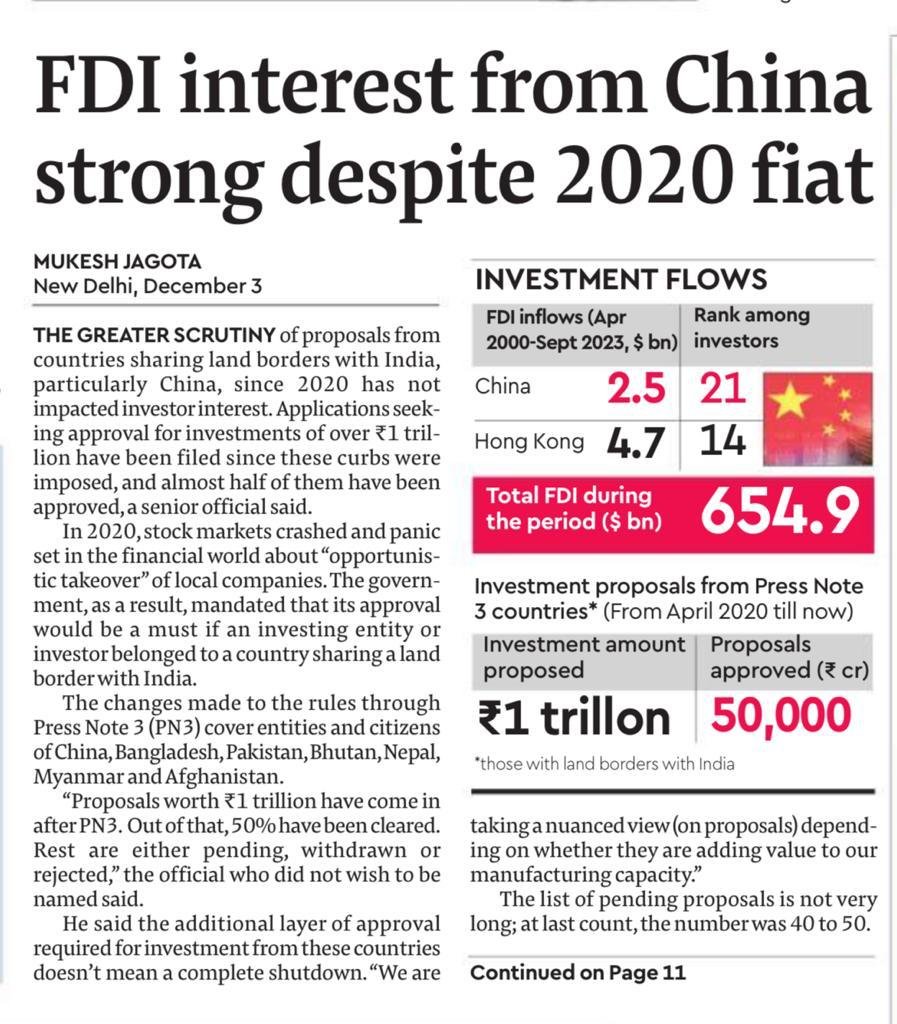NEW DELHI: The greater scrutiny of proposals from countries sharing land borders with India particularly China since 2020 has not impacted the interest of investors. Applications seeking approval for over Rs 1 trillion investments have been filed since these curbs were imposed, and almost half of them got approved, a senior official said.
In 2020, as stock markets crashed and panic set in the financial world about “opportunistic takeover” of local companies, the government mandated that its approval would be a must if an investing entity is situated in a country sharing land border with India or the investor is a citizen of such a country.
The changes made in the rules through Press Note 3 covers entities and citizens of China, Bangladesh, Pakistan, Bhutan, Nepal, Myanmar and Afghanistan.
“Proposals worth Rs 1 trillion have come in after PN3. Out of that 50% have been cleared. Rest are either pending, withdrawn or rejected,” the official who did not wish to be named said.
He said that the additional layer of approval required for investment from these countries doesn’t mean a complete shutdown. “We are taking a nuanced view (on proposals) depending on whether they are adding value to our manufacturing capacity.”
The number of proposals on which decision ie pending is not very long, with at last count, it being in the range of 40-50.
Since the putting curbs on investments from countries sharing land border via PN3, investments from China have been impacted the most.
Between April 2000 and September 2023 total FDI from China was $ 2.5 billion. During this period inflows from Hong Kong were $4.7 billion. From other countries sharing land borders with India the inflows have been miniscule.
The time taken for approvals have nudged MG Motor to take in JSW Group as joint venture partner by giving it 35% stake in its Indian subsidiary.
“As the deal involves MG Hector is reducing stake so it would not need government approval. Government has no objection to it,” the official said.
Faced with a somewhat similar situation some Chinese mobile phone and electronic brands like Xiaomi are increasingly tapping local contract manufacturers to expand in India.
Source: The Financial Express




 Gross Direct Tax May Surpass Budget By Over Rs 1 Trillion
Gross Direct Tax May Surpass Budget By Over Rs 1 Trillion 